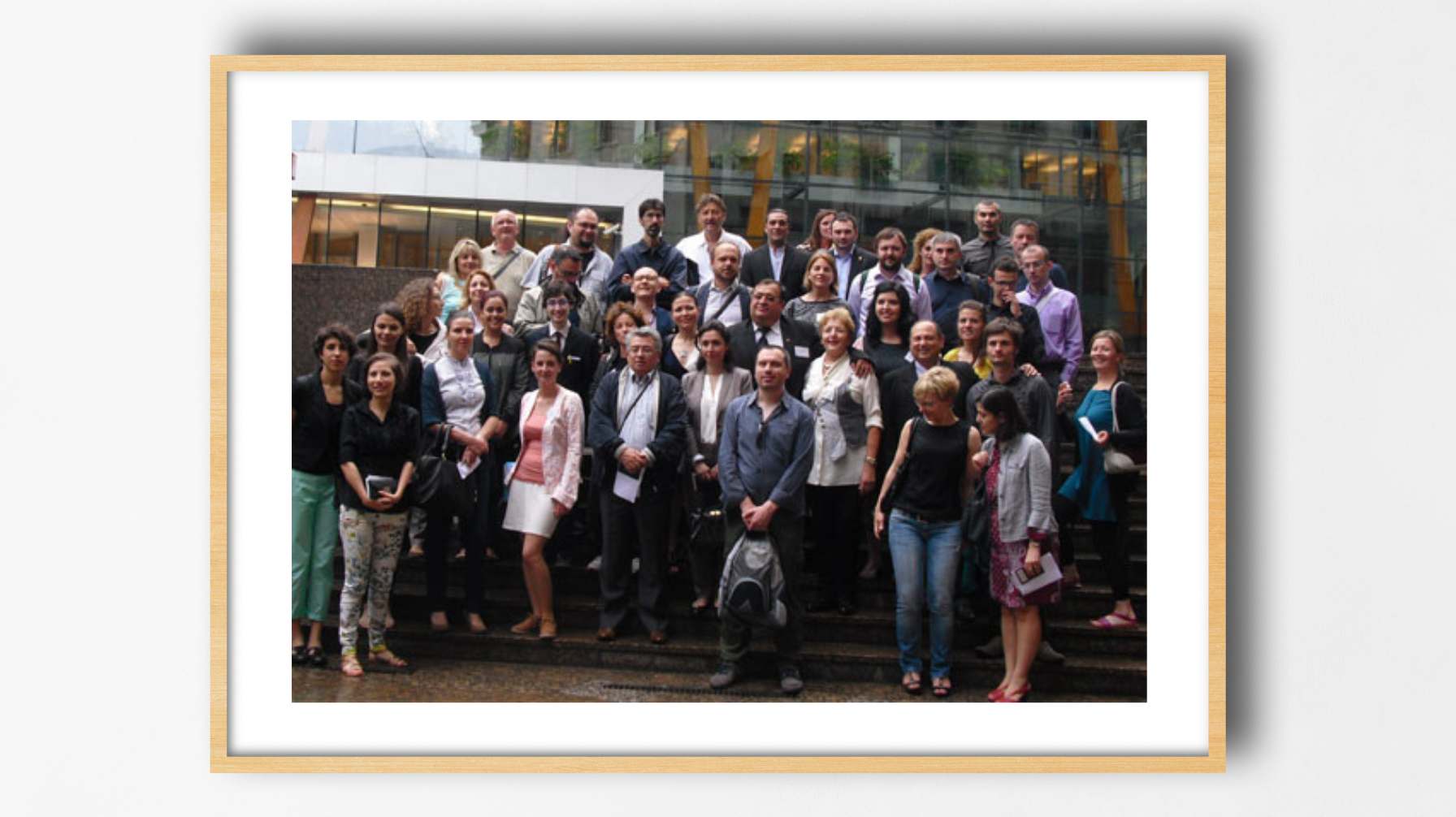A ‘training of multipliers’ took place from 18 to 20 June 2013 in Brussels, within the project COHEIRS – Civic Observers for Health & Environment, Initiative for Responsibility and Sustainability. The event brought together 55 participants representing 31 organisations from 12 different countries in wider Europe.
The aim of the meeting was to train participants on how to locally implement ALDA’s methodology of citizens’ panels, and to provide them with scientific information and tools on environmental and health protection to empower them to act both as facilitators and knowledge-resourced persons.
The activity was a key step for setting up the citizens’ panels and kick-off the workshops on health and environment at local level.
The programme of the event was structured in four different sessions. During the first session, participants were split into smaller international groups, to make them bond while promoting intercultural dialogue and understanding. The second session defined the general framework of the project and the activity. Marco Boaria, ALDA Resource & Development Unit Coordinator, provided participants with detailed information on the Europe for Citizens’ programme, on the perspectives of the new programming period 2014-2020 as well as on ALDA’s methodology of citizens’ panels as applied in previous successful projects such as EUR-Action, ALL4EU, Bandiar, E-Panels and GOAL. The general framework was completed by Prisco Piscitelli, health expert from the International Society of Doctors for the Environment (ISDE Italy), who introduced the prevention and precautionary principles as stated in the article 191 of the Treaty on the Functioning of the European Union. A World Café session was held in order to fill in the general framework with detailed information on the multipliers’ role. By moving from one table to another every 15 minutes, participants contributed to discuss six topics: the values of multipliers, their skills, the tools they should be equipped with, the strategies and methodologies for engaging citizens, the involvement of local stakeholders and the political and social recognition of multipliers.
The third session focused on health and environmental challenges and brought in both local and European perspectives. Participants identified the main issues affecting their local communities, analysed them in a national perspective and discussed them in a non-structured frame. The session was supported by scientific information provided by Mr Prisco Piscitelli and got an academic and scientific feedback from Prof. Dot. Dominique Belpomme, who stressed the importance of the link between environment and health and introduced the Paris Appeal to the audience.
As a final tool to set up the citizens’ panels at local level, participants were called in the fourth session to discuss and define common national guidelines and to coordinate with the dissemination partners to give visibility to the outcomes of their workshops.
The support of the European Commission was key for the success of the meeting. Mr John MacDonald from the Task Force of the European Year of Citizens 2013 informed participants on the tools put at citizens’ disposal for influencing the decision making process. As final step of their training, participants welcomed the visit to the DG Communication as an opportunity to exchange views on efficient means providing visibility to European policies as well as an occasion for presenting the outcomes of the training.
A special focus was given to the European Citizen Initiative (ECI). Mr Jerry Van Den Berge from the European Federation of Public Service presented the successful initiative “Water is a human right!” and answered the several questions by the audience.
